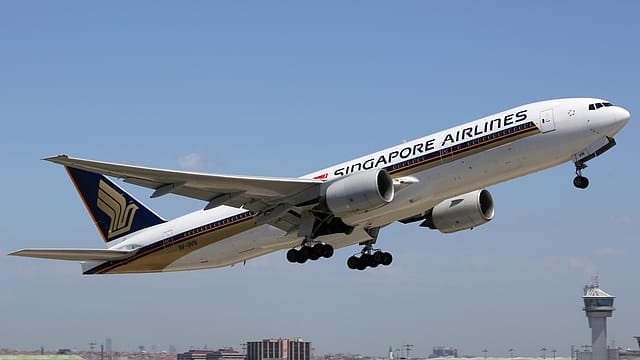Air passenger revenues to drop by $314 billion
ADVERTISEMENT

The Covid-19 pandemic will see global airline passenger revenues drop by a whopping $314 billion in 2020, a 55% decline compared to 2019, according to revised estimates shared by The International Air Transport Association (IATA) on Tuesday. Earlier, IATA had estimated $252 billion in lost revenues (-44% vs. 2019) in a scenario with severe travel restrictions lasting three months.
Its revised estimates reflect a significant deepening of the pandemic, which has forced many countries to shut their borders for a longer period of time. On Tuesday, India extended its nationwide lockdown for another 19 days, till May 3. As of early April, the number of flights globally was down 80% compared to 2019 in large part owing to severe travel restrictions imposed by governments to fight the spread of the virus.
“The industry’s outlook grows darker by the day. The scale of the crisis makes a sharp V-shaped recovery unlikely. Realistically, it will be a U-shaped recovery with domestic travel coming back faster than the international market,” said Alexandre de Juniac, IATA’s director general and CEO.
For the full year, passenger demand (domestic and international) is expected to be down 48% compared to 2019. “We could see more than half of passenger revenues disappear. That would be a $314-billion hit,” de Juniac said.
January 2026
Netflix, which has been in India for a decade, has successfully struck a balance between high-class premium content and pricing that attracts a range of customers. Find out how the U.S. streaming giant evolved in India, plus an exclusive interview with CEO Ted Sarandos. Also read about the Best Investments for 2026, and how rising growth and easing inflation will come in handy for finance minister Nirmala Sitharaman as she prepares Budget 2026.
While governments of many countries have announced financial relief measures for the aviation sector, the on-ground situation remains grim. “Airlines could burn through $61 billion of cash reserves in the second quarter alone. That puts at risk 25 million jobs dependent on aviation,” de Juniac added.
Every airline job saved, he said, would keep 24 more people employed. “It will give airlines a fighting chance of being viable businesses that are ready to lead the recovery by connecting economies when the pandemic is contained. If airlines are not ready, the economic pain of Covid-19 will be unnecessarily prolonged.”
IATA has proposed a number of relief options for governments to consider. They include:
1) Direct financial support to passenger and cargo carriers to compensate for reduced revenues and liquidity attributable to travel restrictions imposed as a result of Covid-19
2) Loans, loan guarantees, and support for the corporate bond market by governments or central banks. The corporate bond market is a vital source of finance for airlines, but the eligibility of corporate bonds for central bank support needs to be extended and guaranteed by governments to provide access for a wider range of companies.
3) Tax relief: Rebates on payroll taxes paid to date in 2020 and/or an extension of payment terms for the rest of 2020, along with a temporary waiver of ticket taxes and other government-imposed levies.
“Without urgent relief, many airlines will not survive to lead the economic recovery,” said de Juniac.
